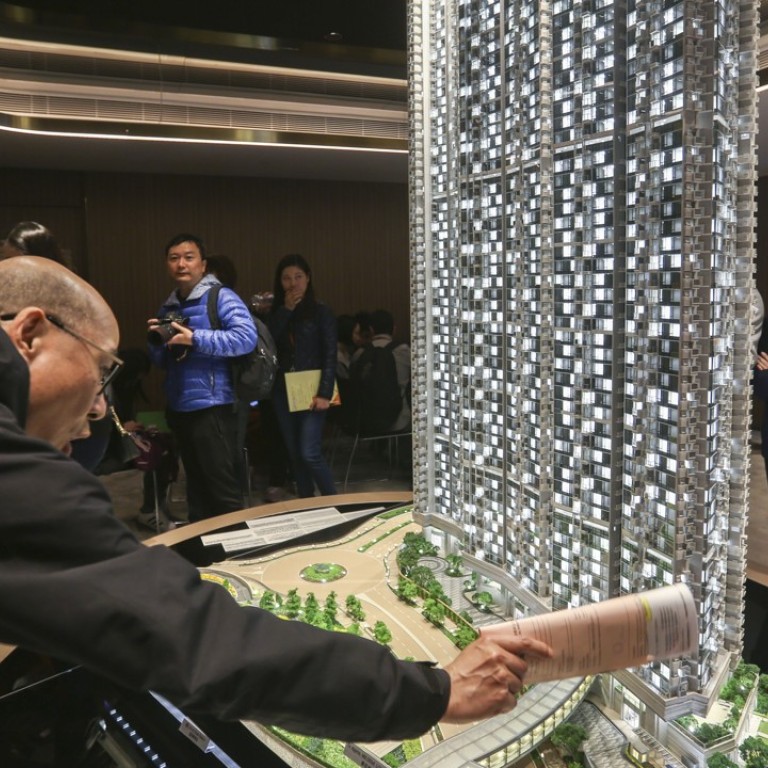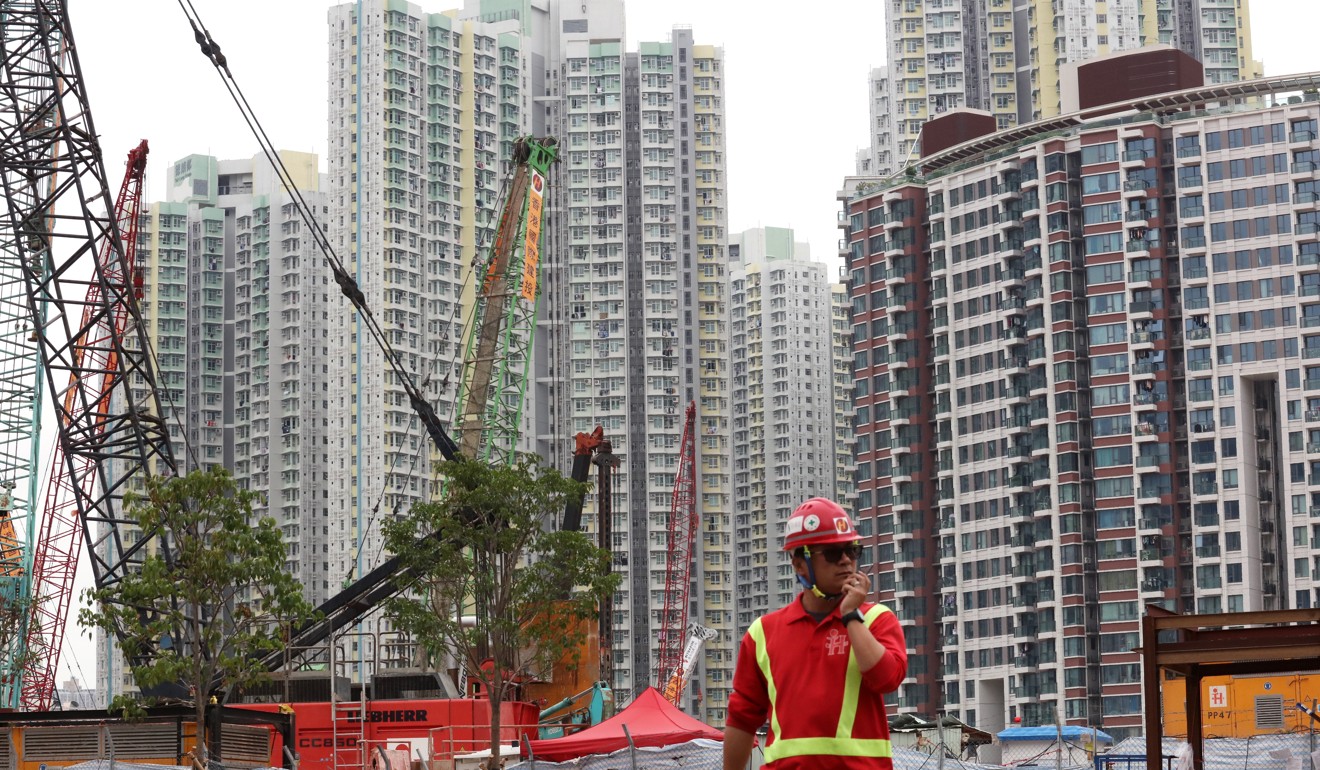
Hong Kong flat hoarders should face vacancy tax that ‘causes them pain’, property experts say
Chief Executive Carrie Lam considering adopting radical measure, but fails to give timeline on when it might come into force
The government could quite easily tax developers who hoard completed flats, analysts and property consultants said on Friday, but if it stops there and ignores homeowners doing the same thing, the policy will do little to ease Hong Kong’s acute housing shortage.
Eddie Hui Chi-man, a real estate economics professor at Polytechnic University said the government could identify unsold new flats in developers’ hands, and levy a tax “high enough to cause them pain”.
However, he and Leo Sin Yat-ming, a property marketing professor at Chinese University, stressed that buyers who had left their flats empty should also be targeted, though identifying them would be challenging.
It would, Hui said, incur “a huge amount of administrative cost and disputes”.

Government figures showed that by the end of last year, 9,370 newly built flats in the world’s most expensive property market were left unsold, accounting for 12 per cent of the 42,940 vacant flats in 2017.
Developers are believed to hold more than 40 per cent of vacant flats, with Sun Hung Kai Properties alone holding on to 1,000 of available inventory.
Developers’ hoard of empty flats aggravates Hong Kong’s housing crisis. Will a tax fix it?
The city leader said she had a “positive attitude” towards the policy, and felt “all suitable flats should be occupied for residence, instead of stockpiling, speculation or other purposes”.
However, Lam refused to give a timeline for when the tax might be imposed, saying a comprehensive policy study and public consultations must be done first.
Owners of empty flats could be taxed under new plan to tackle Hong Kong’s housing shortage
To encourage quick sales of newly built flats, Hui said the government could revise its land sale contracts quite easily, by adding a clause that specifies a time limit for developers to sell all they build.
In Singapore, for example, developers that fail to sell all flats within a set period have to pay the government extension fees; these can rise to 24 per cent of the land purchase price, pro-rated on the number of unsold units for a year.
The tax might end up helping rich people to buy larger flats at a lower price
Thomas Lam, head of valuation consultancy at international property firm Knight Frank said, in foreign countries where vacancy tax was applicable to individual owners, such as Canada and Britain, the authority would check on the flats’ record on using water and electricity, or encourage neighbours to tip off on empty premises.
However, Sin and Lam said such a policy would hardly work in Hong Kong. Lam said utility fees in Hong Kong were not high, and Sin said flat owners could easily fake the record by turning home appliances on from time to time.
Sin also warned the tax might provide little help for buyers struggling to afford the city’s notoriously high prices.
He said in a primary market, completed and empty flats were usually larger apartments, or those with special features that developers only released when prices were favourable. Smaller flats were more often sold through presales before completion.
“With a vacant property tax, developers might sell large flats at less ideal prices to reduce the cost of stockpiling them,” he added.
Wealthy not at home with tax on empty Hong Kong flats
“So, the tax might end up helping rich people to buy larger flats at a lower price, while ordinary people will continue to pay a price unaffected by the tax.”
Wong Leung-sing, senior research director of property broker Centaline, said the government should not transfer its housing problem to the private sector by introducing the vacancy tax.
“These problems cannot be solved by the vacant property tax … helping people to buy private flats, or lowering the property price, should not be the government’s policy goals,” Wong said.

